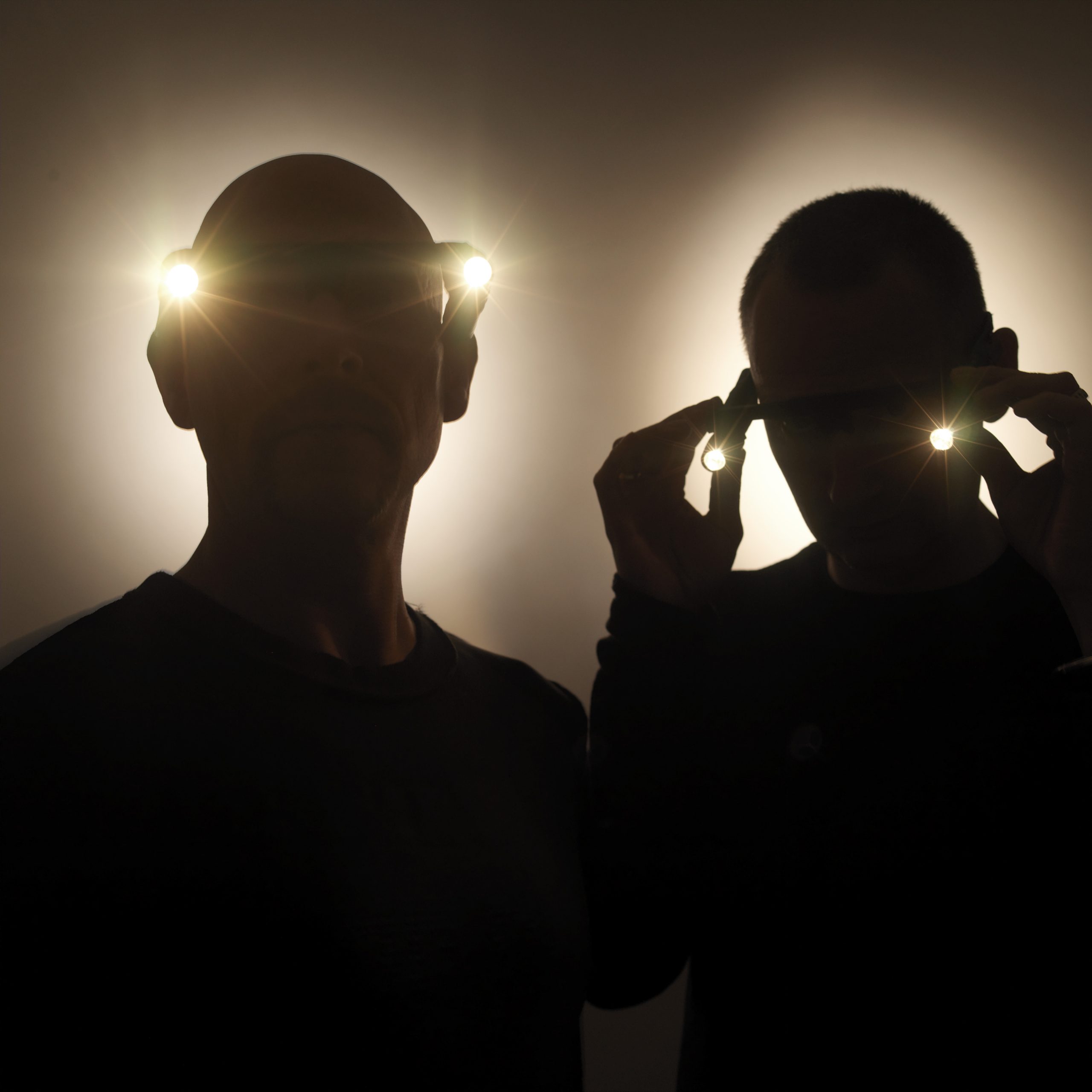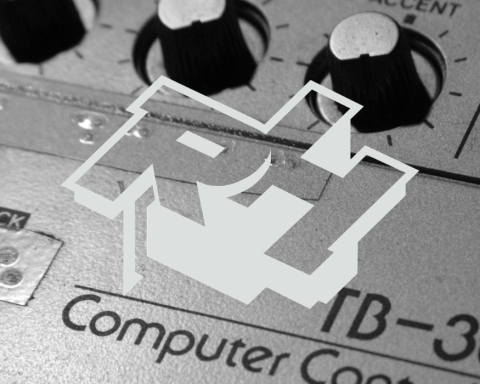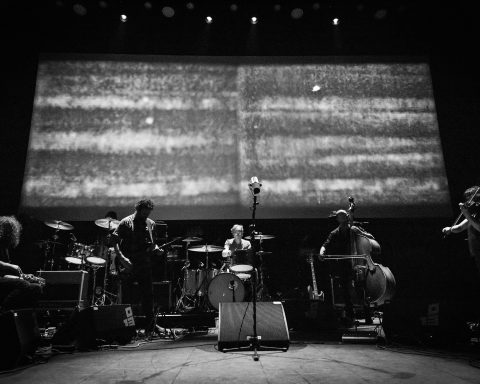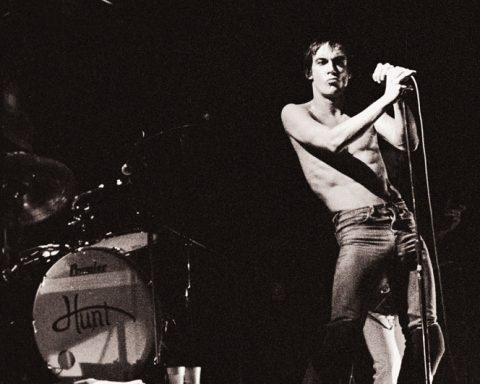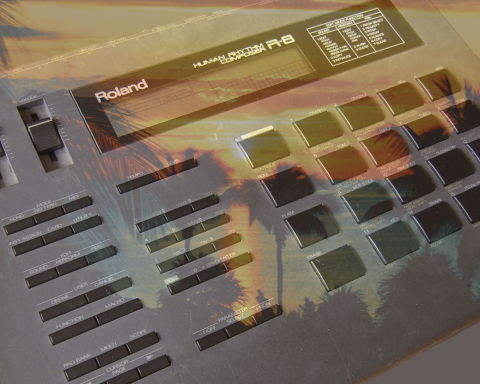Tin-colored spikes of synth pierce a staccato rhythm. The digital tinge of a TB-303 bubbles over a TR-909 beat. Lead synth stabs melt into a melody, cheerful with a touch of cockiness. We’re talking about Orbital’s “Chime,” of course. The merry little jingle beats in your ear like an incessant sloppy smile.
There it stays, ringing over parties for more than 30 years as an absolute rave kid classic. The insistent tune launched suburban Brits Phil and Paul Hartnoll into electronic icons overnight, helping to break the burgeoning acid house scene from illegal raves to Top of the Pops.
“I owe that song a great debt,” Paul remembers, taking a break from making pizza in his London home.
“So many cool records are in a minor key, but ‘Chime’ is a really joggy, happy major key thing—but it isn’t cheesy for some reason. It’s got a real bounce to it. The song screams innocence and newfound youth. I was just coming out of my shell aged 20 or 21. ‘Chime’ sounds like a person exploding into life.”
"It's got a real bounce to it. It screams innocence and newfound youth. I was just coming out of my shell aged 20 or 21."
They famously wrote the seminal classic on a whim. Hartnoll realized one Wednesday that his four-track recorder actually had room for six inputs. He had a few hours before his friends were coming to hit the pub. Why not see what happens when he maxed out the recorder?
He booted up his Roland TR-909 and TB-303, grabbed a couple of samples from a random vinyl, and punched out a series of “dings.” Next came the lead line. Copying the lead didn’t work for the bassline, so he changed a few notes and fell in a groove. He cut the 909 beat to half-length, shoved a leftover sample in the final slot, and bam. A half-hour or so after his friends arrived to drag him away, he’d stumbled on a career.
“The reason it worked is that I wasn’t thinking about it,” he says. “That’s part of the joy, lightly allowing the influence of everything I like to come through. You can hear the influence of Detroit, of Chicago, of acid house. ‘Strings of Life’ is in there. It’s not any of those things, but it’s a bit of all them—even some dub or reggae. I need to do more experimenting don’t I?”
No one batted an eye, except one friend at the end of the couch who called the track “pretty good.” A few days later, Paul brought “Chime” to his buddy Jazzy M’s record shop. Jazzy played the tune for a crowd of DJs and started a label off the hype alone.
When they released the song in 1989, the BBC didn’t allow instrumentals on the radio. However, Radio 1 DJ Gary Davies loved “Chime,” so he played the Orbital track as background music for his daily lunch hour program. The song broke the Top 40, stunning the Hartnoll brothers.
“I was still washing dishes in a pizza restaurant when it came through that we were going on Top of the Pops,” Paul laughs.
“I went into the restaurant on a Monday thinking, ‘Wow,’ and I saw that I was down for Wednesday,” he continues, recalling the mundane details of the day. “So, I called the manager Karen and said, ‘I’m sorry, I can’t do Wednesday.’ She went, ‘you know the rule,’ and I said ‘I’m going to be on Top of the Pops.'”
The life-changing stature of that show wasn’t lost on Paul’s manager. “She paused for a second with a very serious face, grabbed hold of my cheeks, and screamed ‘Oh, my God! Don’t worry about it. We’ll sort it out.’ I said, ‘I don’t think I’m going to come back after that,’ and she went, ‘Oh, that’s okay, but if it doesn’t work out, you’ll always have your job here if you need it.’”
The reality was that Orbital was on the rise—the TV appearance another example of the brothers’ lives changing. “I thought that was so sweet, but I’ve never been back,” Paul says.
"I called the manager and said, 'I'm sorry, I can't do Wednesday.' She went, 'you know the rule,' and I said 'I'm going to be on Top of the Pops.'"
Orbital went on to lead the ’90s UK scene. Many credit their televised performance at Glastonbury 1994 with popularizing the demonized “evil acid house” movement. This resulted in ending years of police crackdowns on raves. Though they took a few breaks along the way, the brothers continue to make music. The latest Orbital LP, Monsters Exist, dropped in 2018. Their Roland gear remains a staple of all their creations.
“My first drum machine was a 909,” he says, “brand new for £230, which was cheap back then. Everybody wanted digital drum machines and the 909 was analog. At the time, it sounded a little bit old fashioned, but it’s all I could afford—but it really kicks ass. It’s got a real weight to it, and obviously, it’s become the legend that it is.”
